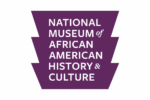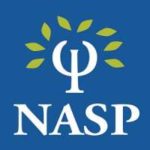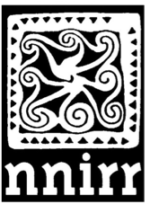Diversity & Inclusion
- ADD/ADHD (8)
- Diversity, Equality, Cultural Competency (50)
- Gender Responsiveness (14)
- Global Learning (9)
- Immigration (43)
- Inclusion/Disability Awareness (28)
- LGBTQIA2+ (38)
- Social Justice (36)
Pronouns are the words we use to refer to ourselves and others and are an important part of our daily lives. In English, the most common personal pronouns are he/him/his and she/her/hers, which are typically used to refer to people who identify their gender (identity) as masculine or feminine, respectively. They/them/theirs is another common set of pronouns that is used by many non-binary people.
On this page you will find answers for several common questions about neopronouns as well as a table listing the conjugations of several common neopronouns.
The Understanding LGBTQ+ Identity: A Toolkit for Educators Collection offers a series of digital media resources to help administrators, guidance counselors, and educators understand and effectively address the complex and difficult issues faced by LGBTQ students. The collection features short segments of video content from WNET’s groundbreaking LGBTQ series First Person, a digital series that delivers candid personal narratives illustrating larger conversations about gender, sexuality, social norms, and identity development. The video content is scaffolded by a suite of materials (informational text, conversation guides, discussion questions, and teaching tips) to facilitate their use in professional development settings. When used in tandem, the videos and accompanying educational resources will help promote understanding, awareness, and self-esteem.
Juneteenth is a time for celebration and reflection with the whole family. For young children, the abstract concept of freedom and the hard history of slavery can be challenging to grasp. NMAAHC’s early childhood education team offers the following resources to support young children’s understanding and celebration of Juneteenth: a guide on how to talk about slavery and freedom in age appropriate ways, an activity to inspire hope and activism, and a children’s book and online resources list.
Here is a complied list of leaders and educators who talk about global learning on twitter.
In this article published by the National Association of School Psychologists, researchers discuss how trauma affects youth and how it affects their school functioning as well as how schools can use a trauma-informed approach.
The Trauma and Learning Policy Initiative’s (TLPI) mission is to ensure that children traumatized by exposure to family violence and other adverse childhood experiences succeed in school. To accomplish this mission, TLPI engages in a host of advocacy strategies including: providing support to schools to become trauma-sensitive environments; research and report writing; legislative and administrative advocacy for laws, regulations, and policies that support schools to develop trauma-sensitive environments; coalition building; outreach and education; and limited individual case representation in special education where a child’s traumatic experiences are interfacing with his or her disabilities.
This toolkit was created to serve as an emergency toolkit that advocates can reference to respond the moment ICE conducts a worksite raid in their community.
The mission of the Young Center for Immigrant Children’s Rights is to promote the best interests of unaccompanied immigrant children (children on the move) with due regard to the child’s expressed wishes, according to the Convention on the Rights of the Child. This site offers free advice and resources on topics involving child immigration.
The Trevor Project is the leading national organization focused on crisis and suicide prevention efforts among lesbian, gay, bisexual, transgender and questioning (LGBTQ) youth.
The National Network for Immigrant and Refugee Rights works to defend and expand the rights of all immigrants and refugees, regardless of immigration status. Since its founding in 1986, the organization has drawn membership from diverse immigrant communities and actively builds alliances with social and economic justice partners around the country.
The National Immigration Law Center is dedicated to defending and advancing the rights of low-income immigrants and their family members. Over the past 30 years, NILC has earned a national reputation as a leading expert on immigration, public benefits and employment laws affecting immigrants and refugees.
The National Immigrant Youth Alliance is an undocumented youth-led network of grassroots organizations, campus-based student groups and individuals committed to achieving equality for all immigrant youth, regardless of their legal status.









